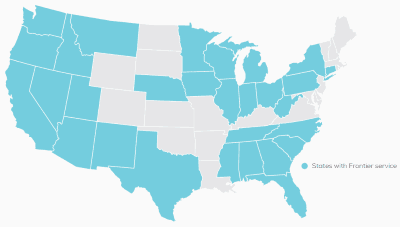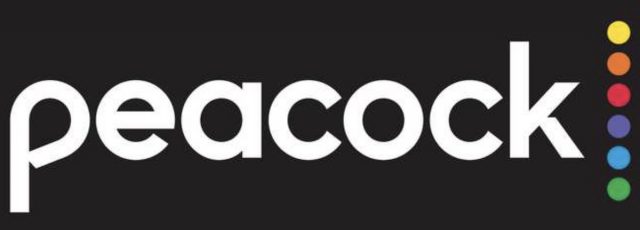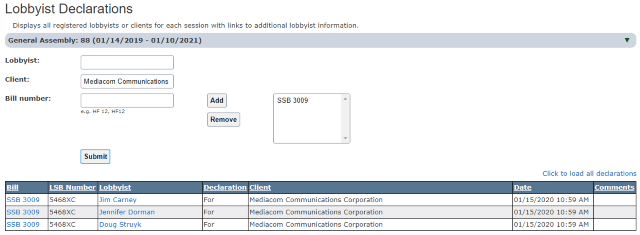 Residents of southern Vermont are upset about Comcast’s proposed acquisition of an independent cable company that has served the region for more than 30 years, fearing the cable giant will bring its reputation of high rates, poor service, and abusive customer relations to an area known for resisting large corporations.
Residents of southern Vermont are upset about Comcast’s proposed acquisition of an independent cable company that has served the region for more than 30 years, fearing the cable giant will bring its reputation of high rates, poor service, and abusive customer relations to an area known for resisting large corporations.
The Southern Vermont Cable Company (SVCC) owns several small cable systems serving about 2,450 subscribers around Brattleboro, just a short distance from the Massachusetts and New York borders. SVCC launched service because larger cable companies including Comcast and what was formerly Time Warner Cable did not see a viable business opportunity serving southern Vermont. The independent operator successfully launched service on its own, but has faced business pressure from cord-cutting and a constant need to upgrade its cable plant to meet growing demands for fast and robust broadband service.
 “For more than 30 years, SVCC has offered great local service to its customers and has made significant capital investments in its system throughout the years,” Daniel M. Glanville, vice president of government/regulatory affairs and community impact for Comcast’s western New England region, said in testimony before state regulators reviewing the sale. “However, there is a need for continued capital investment as technology continues to evolve and video competition continues to increase due to an ever-growing number of video service options.”
“For more than 30 years, SVCC has offered great local service to its customers and has made significant capital investments in its system throughout the years,” Daniel M. Glanville, vice president of government/regulatory affairs and community impact for Comcast’s western New England region, said in testimony before state regulators reviewing the sale. “However, there is a need for continued capital investment as technology continues to evolve and video competition continues to increase due to an ever-growing number of video service options.”
Instead of offering to sell the system to the communities it serves, SVCC executives elected to sell the system to Comcast.
“I am confident that an organization like Comcast will provide SVCC’s subscribers with quality customer service and will continue to invest in SVCC’s systems,” said Ernest Scialabba, president and owner of SVCC.
Customers have a much different view, according to the Brattleboro Refomer:
Steve West of Dummerston told regulators he has “only praise for the good folks at SVCable, and nothing but contempt for Comcast.”
“As a computer repair professional for 20 years, I’ve had many dealings with Comcast/Xfinity, nearly all of it bad,” he wrote. “Many of us in rural Vermont have few options. I view them as one of the most toxic companies in the U.S., and I’ve successfully avoided being a customer.”
Martha Ramsey of Brattleboro told the commission she is a Comcast customer and “can attest, along with all my neighbors, that Comcast has a long way to go to providing reliable cable service” to southern Vermont.
“Therefore, I can only assume that this sale would simply be a hostile buyout for the benefit not of customers but of shareholders, and so should not be permitted, in order to prevent any further erosion of decent utility services in Vermont,” she wrote. “My Comcast bill has already increased by an outrageous percentage in the last five years without any credible explanation, and I expect such increases to continue. Helping Comcast to become the only player in the market would be to accelerate this race to the bottom — that is, increasingly unaffordable and increasingly shoddy infrastructure and service — that at a scary pace is impoverishing all but the very wealthy.”
 “Comcast will provide increased reliability and network capacity which will enable former SVCC customers to enjoy the full suite of Comcast’s Xfinity TV services, including the X1 platform, Xfinity on Demand (Comcast’s video on demand service), multiple high-definition offerings, sports programming and international programming,” said a Comcast representative. “Comcast will also introduce Comcast Business Services, which provides business-grade products and services for businesses of all sizes. Video customers will also be able to use the Xfinity Stream app on their tablet or smartphone to view live and Xfinity On Demand programming.”
“Comcast will provide increased reliability and network capacity which will enable former SVCC customers to enjoy the full suite of Comcast’s Xfinity TV services, including the X1 platform, Xfinity on Demand (Comcast’s video on demand service), multiple high-definition offerings, sports programming and international programming,” said a Comcast representative. “Comcast will also introduce Comcast Business Services, which provides business-grade products and services for businesses of all sizes. Video customers will also be able to use the Xfinity Stream app on their tablet or smartphone to view live and Xfinity On Demand programming.”
But the idea a giant multinational company like Comcast, with more than 830,000 customers, will preserve a local touch to SVCC’s operations is absurd, according to local residents.
“Please don’t allow this to happen,” Kathleen Fleischmann wrote. “One of the reasons we chose to move to Vermont was that it wasn’t owned by the multinationals. Southern Vermont Cable is a great company, and our service would certainly be degraded by having to deal with Comcast. You must be aware that they are one of the most hated corporations in the country. Their lack of customer service is legendary.”
Eli K. Coughlin-Galbraith urged the commission not to “let this one go. We’re all being strangled by massive multinational corporations piece by piece. Fight it. Fight it any way you can.”
The Vermont Department of Public Service will hold a public hearing about the proposed sale from 4-8 p.m. on Feb. 3 at the O’Brien Auditorium in the East Academic Building at Landmark College in Putney.


 Subscribe
Subscribe

 Frontier Communications will file Chapter 11 bankruptcy by March, according to
Frontier Communications will file Chapter 11 bankruptcy by March, according to  Most of Frontier’s fiber-to-the-home territories were acquired by the company, hoping such acquisitions would deliver a much-needed revenue boost. But some analysts say Frontier overpaid to acquire those service areas, and in several cases botched a conversion to Frontier’s billing and service platform, alienating customers.
Most of Frontier’s fiber-to-the-home territories were acquired by the company, hoping such acquisitions would deliver a much-needed revenue boost. But some analysts say Frontier overpaid to acquire those service areas, and in several cases botched a conversion to Frontier’s billing and service platform, alienating customers. Comcast video customers will be the first to get Comcast/NBCUniversal’s new streaming platform, dubbed “Peacock,” featuring over 400 TV series and 600 movies, mostly from the library of Universal Studios, beginning this spring.
Comcast video customers will be the first to get Comcast/NBCUniversal’s new streaming platform, dubbed “Peacock,” featuring over 400 TV series and 600 movies, mostly from the library of Universal Studios, beginning this spring. Lobbyists for Mediacom, one of America’s medium-sized cable operators, are reportedly behind the latest effort to curtail public broadband in the state of Iowa with a new bill designed to make life difficult for municipalities trying to get internet access to their residents.
Lobbyists for Mediacom, one of America’s medium-sized cable operators, are reportedly behind the latest effort to curtail public broadband in the state of Iowa with a new bill designed to make life difficult for municipalities trying to get internet access to their residents.
